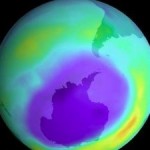In addition, the Defra guidance could be extended to clarify the slightly more complicated cases where the reporting company purchases electricity and is the owner/operator of the T&D system, or when the reporting company is the generator of the electricity. At present, the guidance doesn’t cover these cases.
One provider of guidance for greenhouse gas measurement that has got the reporting of purchased electricity emissions straightforwardly wrong is the Carbon Trust. The downloadable spreadsheet for the Carbon Trust Standard, Carbon footprint spreadsheet (v4.0), uses a “consumed” emission factor and reported the result as scope 2. Many reporting companies rely on the Carbon Trust as a guide to good practice, and although the spreadsheet is intended as a tool for measurement rather than reporting, this reporting error has inevitably been replicated by a number of companies.
The Carbon Trust Standard is now aware of the error in the spreadsheet and has issued an amended version (unfortunately also called “v4.0”), in which the electricity emissions calculated using the “consumed” factor are now titled “scope 2, 3”. However, it should be noted that best practice is to report emissions separately by scope, and not to aggregate emissions across different scopes. It is important that companies do not use the Carbon Trust Standard spreadsheet as an exemplar of good practice for reporting emissions.
References:
About the Authors:
Matthew Brander is senior analyst at Ecometrica and has over 5 years’ experience in conducting organizational greenhouse gas emissions assessment, life cycle assessment, and climate change policy and project appraisal. He has recently worked on projects for the UK’s Department for Energy and Climate Change, the Department for Transport, the Renewable Fuels Agency, the Scottish Government, the Food and Climate Research Network, and a consortium research project funded by the Natural Environment Research Council. Matthew Brander has an M.Sc. in Environmental Sustainability from the University of Edinburgh.
Gary Davis is the operations director at Ecometrica and an experienced consultant specializing in the quantification of greenhouse gas emissions. He has a first class B.Sc. (Hons) in Physical Geography from the University of Edinburgh.
Also by Gary Davis:













